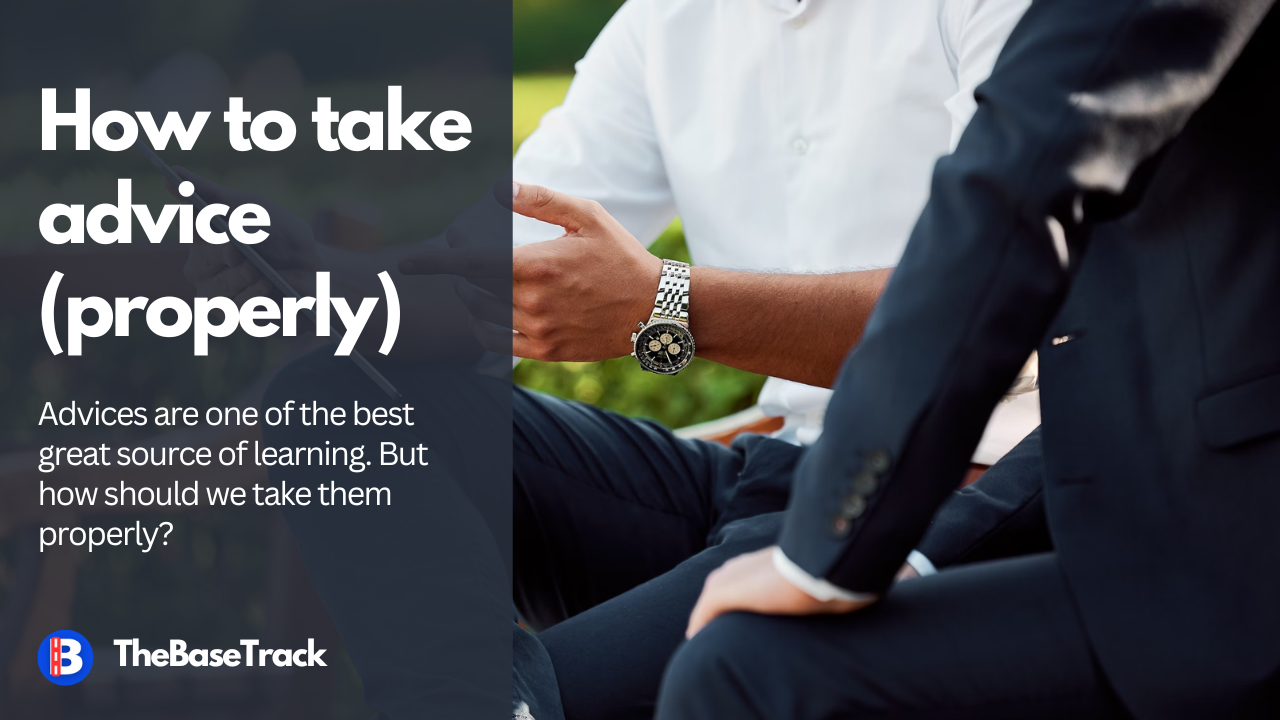How to take advice (properly)

💭 Giving advice is hard. Taking advice is damn harder. My life-long mission is to explore the most efficient way for people to learn anything quickly because.. life is short.Advices are one of the best great source of learning, it helps you learn an insight or concept without wasting so much time experiencing the process. As a matter of fact, so far I’ve seen such many posts on how to giving advice but not so much on how to receiving it. It’s highly obvious to me that everyone should learn how to take advice properly (and more seriously). In this post, I collect some research and “thoughts experiment” for you all as a reference point to survive in the advice economy.
1. Context is king
👉 To get the most out of an advice, it's important to ask for context. Rather than immediately agreeing or applying the advice, ask how the person learned about the insights or who the advice is most suitable for.
(1) Don’t just say | (2) Do ask for context |
“Your advice is exactly like my views!” (bias) | “How did you learn about this insights?” (ask for context) |
“It sounds like it could apply the advice right away!” (quick judgement) | “Who is the most suitable for this advice?” (ask for context) |
“I think your advice is correct” (trust blindly) | “Why do you think it’s important? Have you experience any downside that made you come to the insights? (ask for context) |
Disclaimer: It does not mean that you shouldn’t say things in the left column (1). Sometimes you can mix the right column (2) with the left one (1) to make the conversation sounds more casual… but you get the point. 💩




